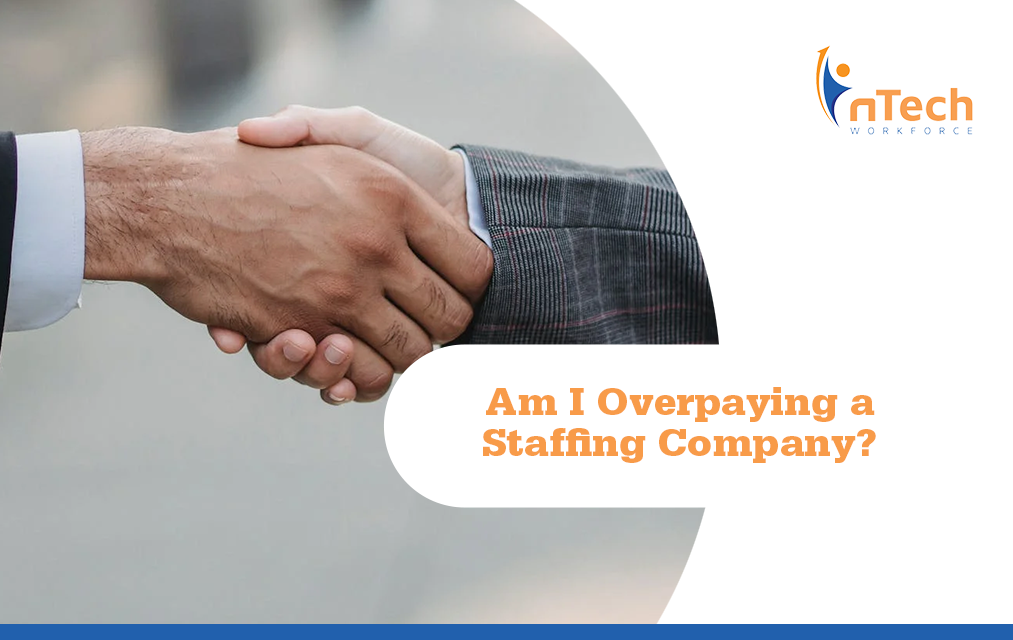How Can I Get the Most Out of My Relationship with My Staffing Agency?
According toMcKinsey, the demand and supply for contingent workers is booming, withsome going as far as to say that a contingent workforce can be the...

As companies continue to navigate through the great resignation, company culture talks are top of mind for many executives and business owners looking to retain top talent. According to Indeed, company culture refers to values and behaviors exhibited within and by a company. Often described as the "soul" of an organization, company culture is important because it shapes how employees think, feel, and behave. It also affects how employees interact with customers, job seekers, and other members of your network and community. If you are looking to accelerate the success of your business, cultivating a positive company culture to reflect your values and beliefs is essential.
In this edition of nSider, Brandee Roberts, Director of HR, and Arthur Ransier, Director of Business Strategy at nTech Workforce share their opinions and expertise on the importance of developing a positive company culture.
Your company culture could be affecting the perception that applicants have of your business and could be keeping them from applying for a job or staying long-term.
Research by the Department of Economics at the University of Warwick found that happy workers are 12 percent more productive than the average worker, and unhappy workers are 10 percent less productive. Unhappy employees cost American businesses over $300 billion each year.
In addition, McKinsey also found that [those] with positive employee experiences have 16 times the engagement level of those with negative ones, and they are eight times more likely to want to stay.
For your organization to attract great people, you'll need to model great culture and position your company as forward-thinking, empowering, and supportive. An example of this would be offering a flexible work environment.
Visier notes that employees who had one-way commutes of 45 minutes or more had higher turnover rates.
Another way to create a company culture that empowers employees could be by creating an environment that is fun, creative, and collaborative.
McKinsey research has found that the most resilient companies—those that improved their performance in the first year of the pandemic—relied more on small, cross-functional teams with real authority to make decisions. They delegated more, did more leadership training, and focused more on outcomes. Not coincidentally, they also saw higher employee satisfaction.
In some cases, offering a healthy company culture will carry a bigger influence than offering higher pay to a candidate.
According to Brandee Roberts, Director of HR at nTech Workforce:
“...money is important, for sure, however, a lot of people now are looking to keep their emotional and mental wellbeing a top priority. They look at work as their livelihood not that work will be their life. Feeling like your work is helping the greater good of the company and your team, really means a great deal, and getting the acknowledgment and credit for a job well done makes people feel happy and useful which can often mean more than dollars.”
When recruiting, avoid describing your company culture as 'one big family' as this conjures negative connotations for candidates and could be keeping top talent from applying. Families fight, argue, take sides, and expect favors, whereas a company should be respectful, and professional, and appreciate your time and thoughts.
According to Brandee, “describing company culture as ‘we’re just one big family’ can often deter top talent from joining your team, since most professionals are looking for unique opportunities to advance their careers within a supportive team of like-minded experts.”
Brandee suggests that rather than use the phrase 'one big family', companies should:
“highlight the benefits of the position and how [your company] supports individualism, creativity, and teamwork. If you offer perks such as free gym memberships, private healthcare plans, and monthly rewards, be sure to outline them clearly within the job listing.”
If you’re not happy with your company culture, it may be time for a change. You may also be experiencing a high turnover of staff and less interest from applicants to join your business. But changing the way people feel at work is no easy pursuit.
Company culture is often shaped by the values of senior leadership, so if you're not in a position to make sweeping changes yourself, you may need to have a conversation with your boss.
If you’re unable to change the minds of those above you at work, you can also try to lead by example by hiring people with great values and encouraging your colleagues to adopt a more positive outlook when at work.
According to Arthur Ransier, Director of Business Strategy at nTech Workforce “[companies] can hire people from different backgrounds, with different experiences, under different circumstances, who share similar values and stand for similar things, like the value of great relationships and community, trust, grit, efficiency, and leadership.”
While company culture can be a tricky thing to change, it's not impossible. And with the right attitude and approach, you can make great strides toward creating a culture that others want to adopt and follow.
While creating a positive company culture is important, being able to describe it and share it with others is equally is as crucial.
For Brandee, it’s about telling the story and sharing experience, “when interviewing a candidate or welcoming a new hire, I share my story within the company from where I started to where I am now and how I [can] rely on team and company as a whole.”
For example, Brandee often shares stories of “people who have been [at nTech Workforce] less than a year and have had fabulous ideas [that] the company has already put into play.”
Arthur also agrees that “it comes down to great storytelling to demonstrate authentic office culture, through real-life experiences of employees.”
At nTech Workforce, we carry out research to understand our client’s unique company culture so that we can find candidates that are the right fit. We rely on our Sales and Client Relations departments to research company culture in advance so that when we hire people to work with our clients, they complement and empower their businesses.
nTech Workforce can be your trusted partner and advisor for all of your staffing needs.

According toMcKinsey, the demand and supply for contingent workers is booming, withsome going as far as to say that a contingent workforce can be the...

When the economy is in flux, organizations look for ways of cutting costs, and that typically begins with outsourced work. Leaders want to see if...

Understanding the dynamics of commission structures within the staffing and recruiting industry is crucial for businesses seeking talent acquisition...